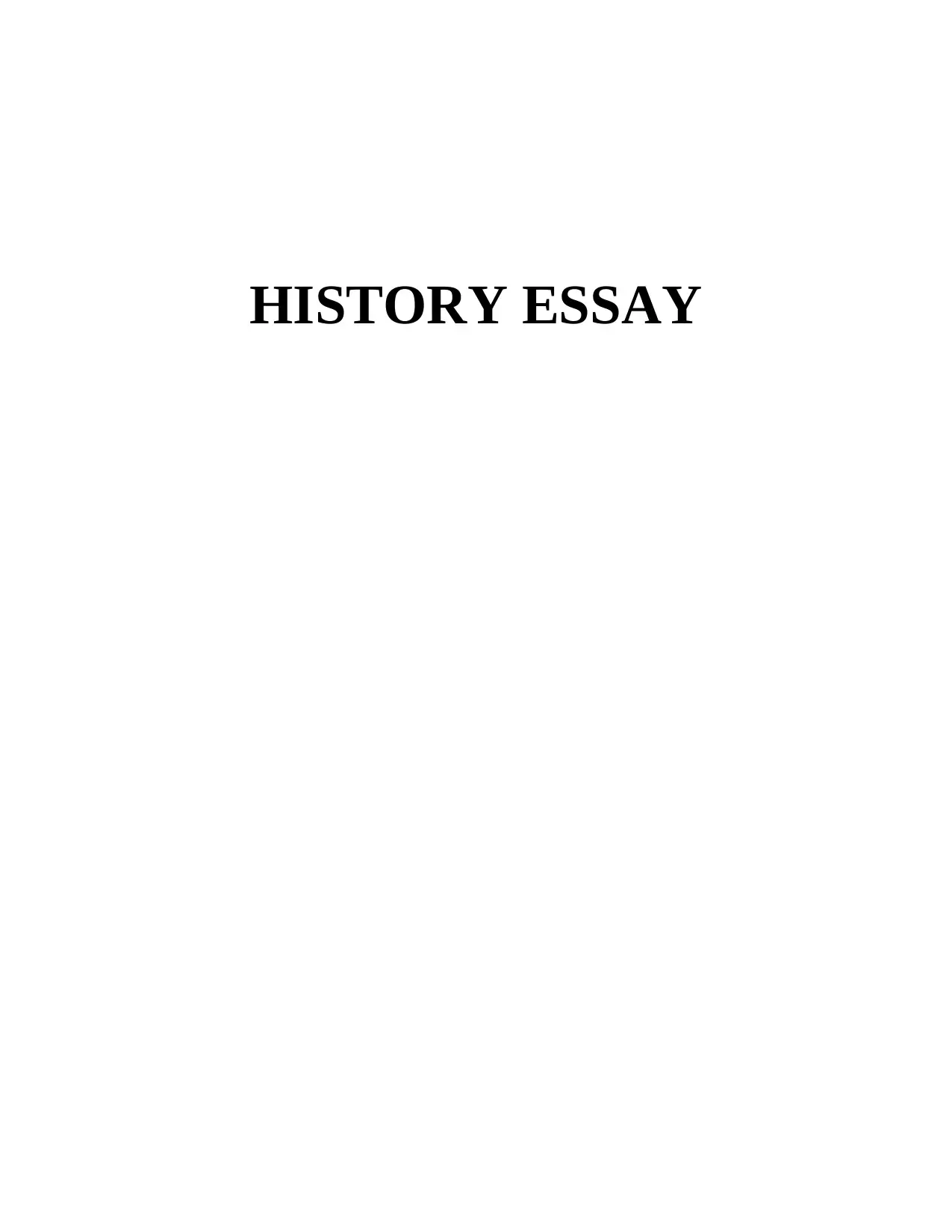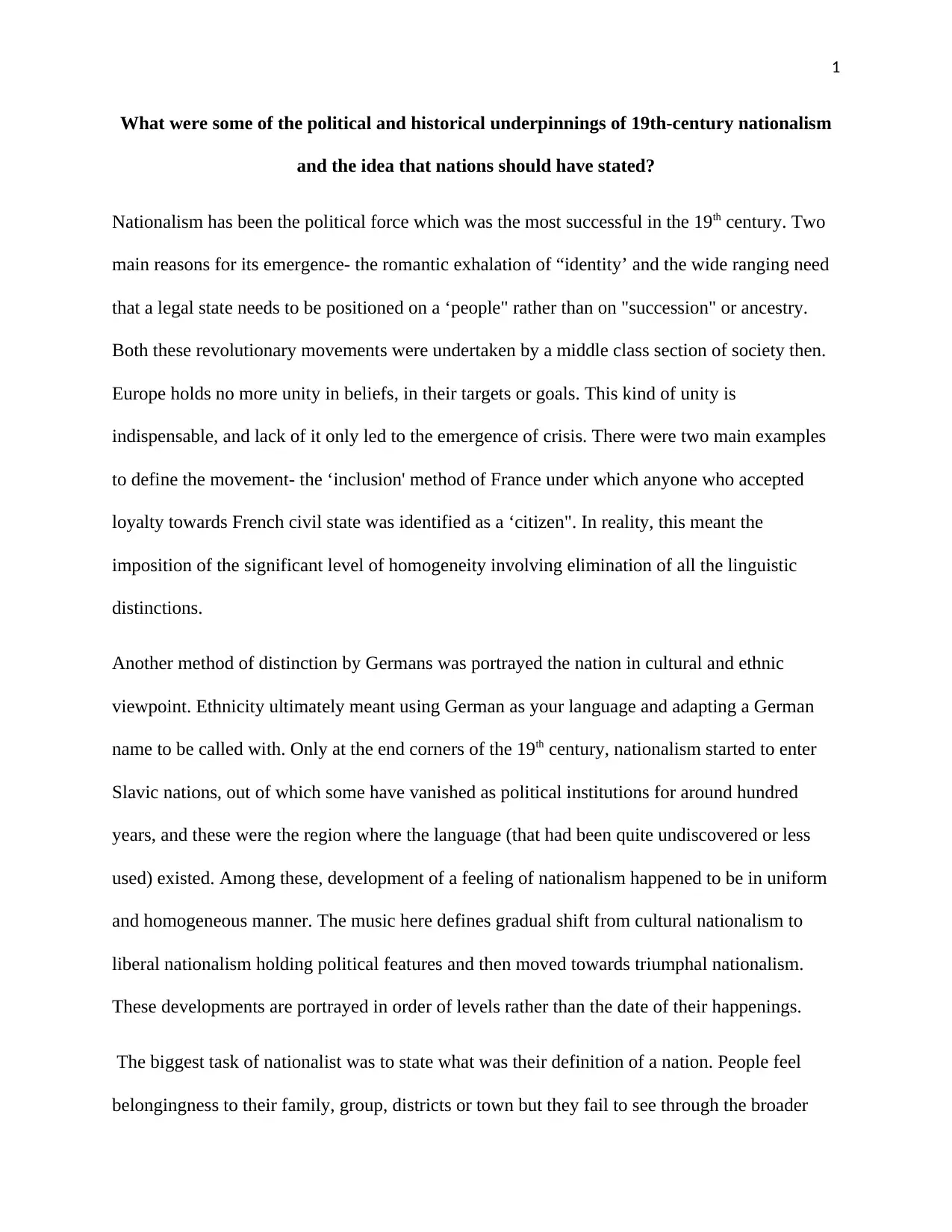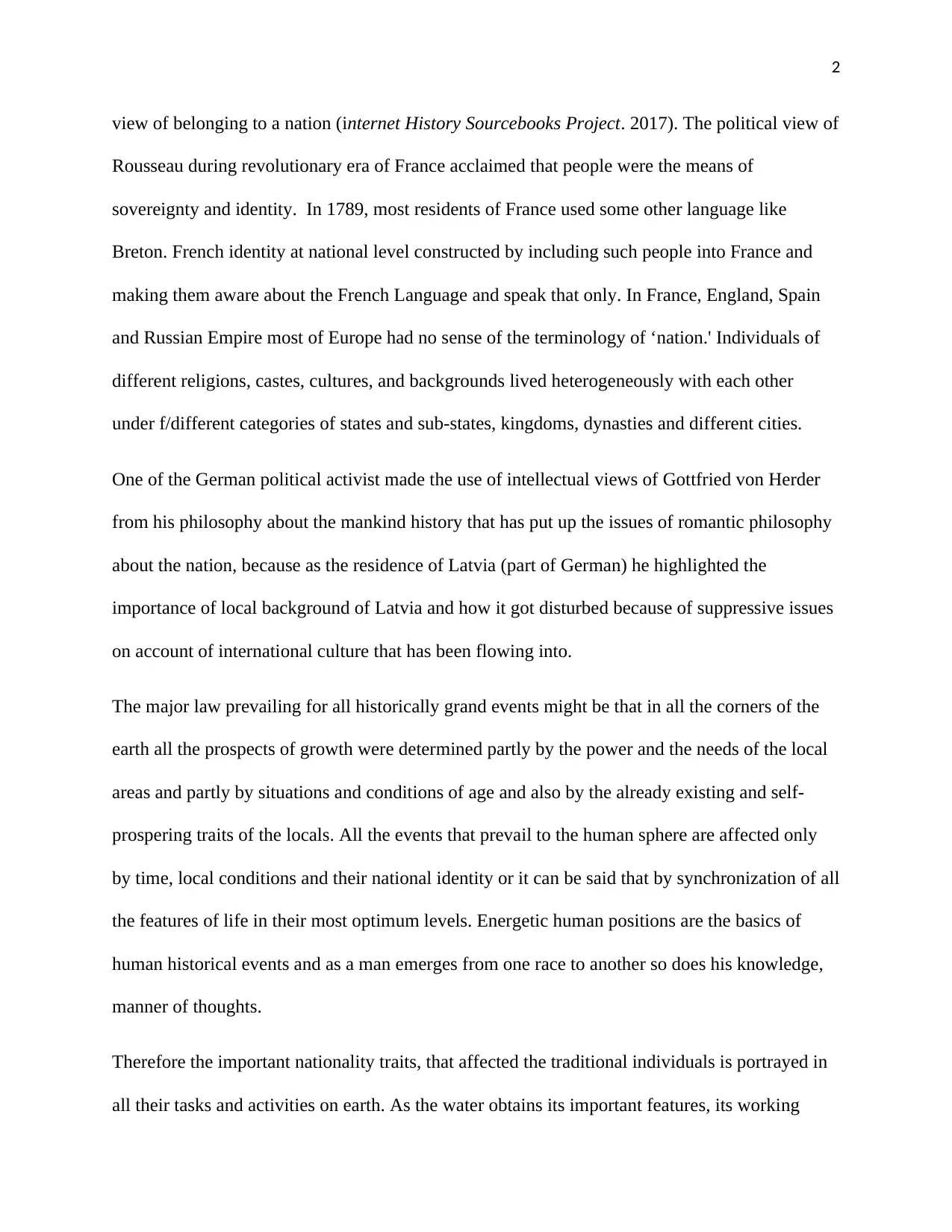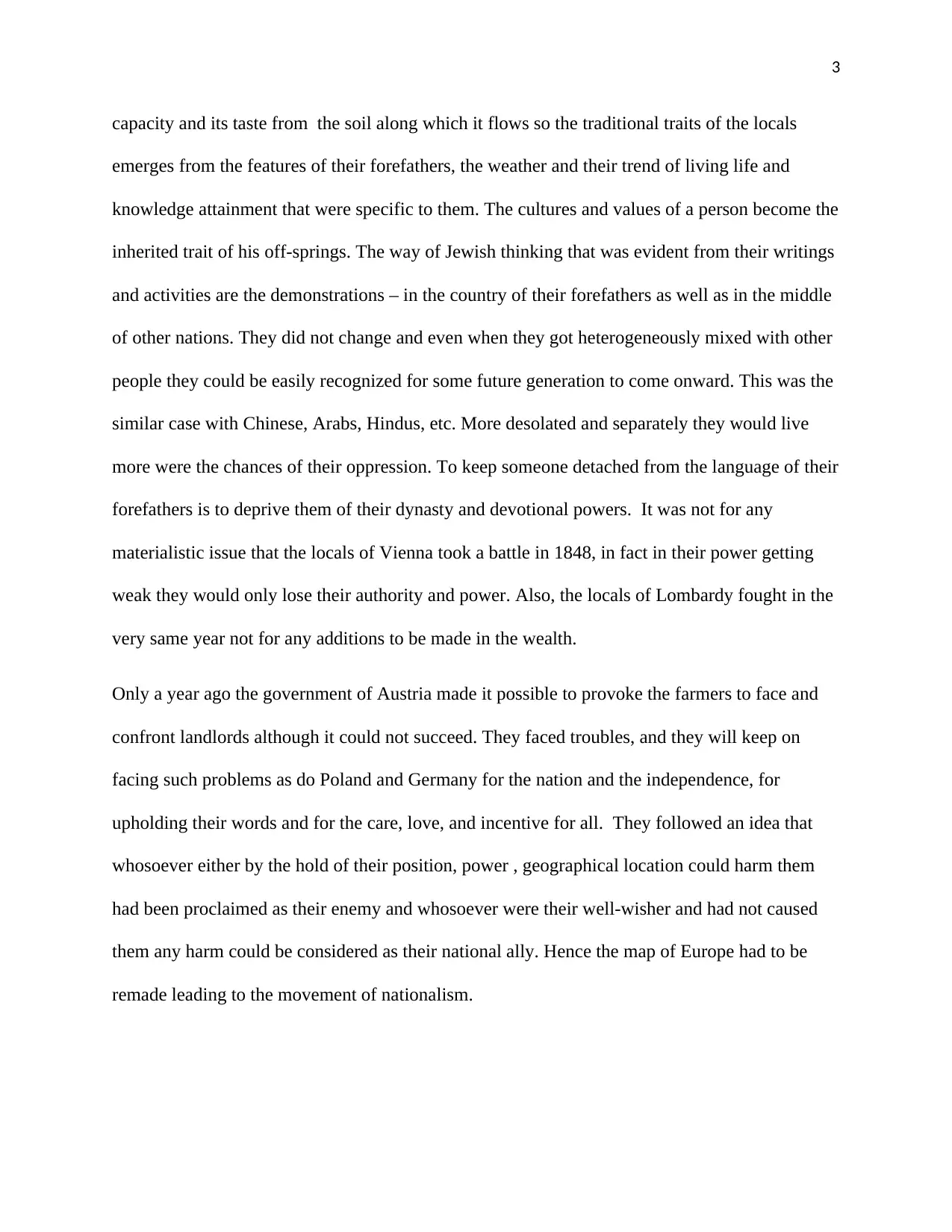Essay on Nationalism and Nation-States in the 19th Century
VerifiedAdded on 2019/09/30
|6
|1148
|486
Essay
AI Summary
This essay delves into the multifaceted nature of 19th-century nationalism, examining its political and historical foundations and the concept of nation-states. The essay highlights the emergence of nationalism, driven by the romantic exaltation of identity and the need for legal states to be based on the people. It explores the diverse manifestations of nationalism across Europe, including the 'inclusion' method of France and the cultural and ethnic perspective of Germany. The essay further discusses the late entry of nationalism into Slavic nations, the shift from cultural to liberal and triumphal nationalism, and the challenges in defining a nation. It references the political views of Rousseau, the philosophy of Gottfried von Herder, and the impact of local conditions on the development of national identity. The essay also touches upon the experiences of various groups like the Jews, the struggles for independence and the varying forms of nationalism including cultural values, liberal statements and chauvinistic claims. The essay concludes by acknowledging the utilization of national eloquence by Marxist ideologies in the 20th century.
1 out of 6










![[object Object]](/_next/static/media/star-bottom.7253800d.svg)